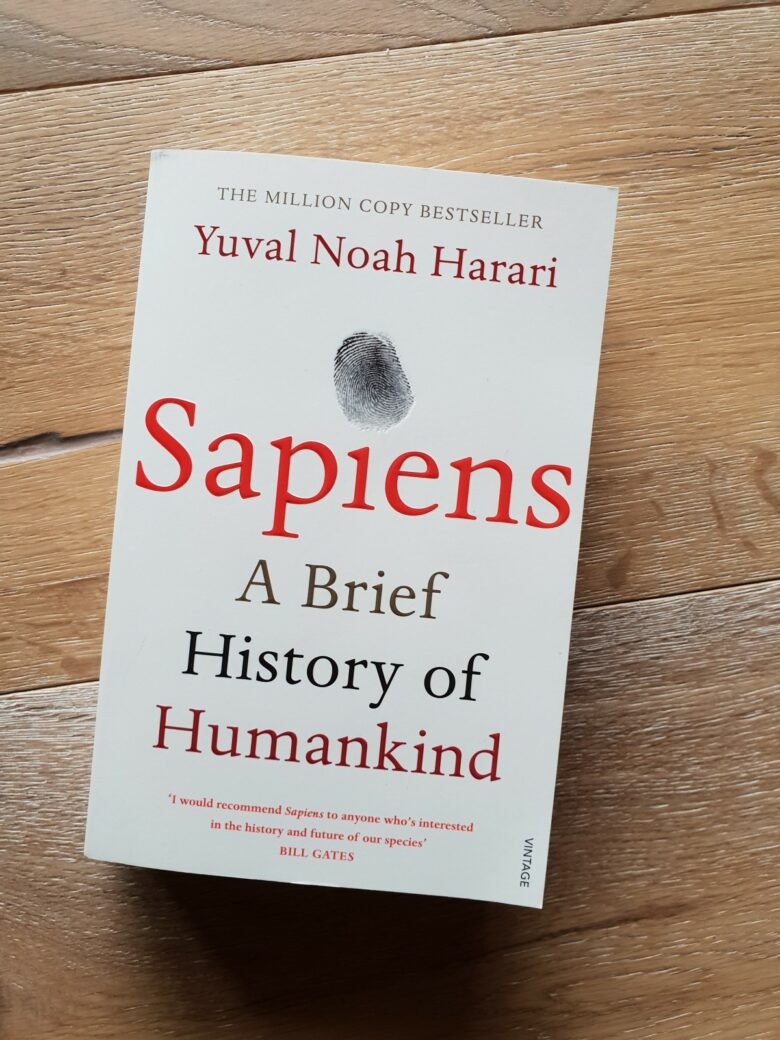The first few chapters of this book are difficult. Harari sets up a nihilistic worldview that depressed me for days. Harari starts his book by undermining humanity’s ability to find and create meaning, he completely erases and neglects a feminine perspective, and he exposes his (I would argue) disgust for homo-sapiens as a species. It is difficult to read. However, as the book progresses the content becomes more science-based and incorporates the beauty of meaning humans are capable of. The scientific themes and questions presented by the author are fascinating.
Harari introduces the reader to the agricultural revolution and surprisingly states that humans didn’t domesticate wheat, wheat domesticated sapiens. In fact, throughout this book, Harari surprises his reader with paradoxical and unprecedented ideas frequently. I learned an exorbitant amount of things (that I have already forgotten) about unifiers, religion (animists, polytheists, dualists, monotheists, Buddhists, etc), happiness, language, and many other interesting things.
Thank you, Yuval Noah Harari, for reminding me to stand on scientifically solid ground sometimes. To acknowledge that the power of imagination and collective illusions can and should be negotiated, changed, and examined constantly. Thank you for suggesting to the world that we need to recognize that everything about language, history, capitalism, governments, money, cultures, etc. only exists in our minds. These things are collective ideas that we, as sapiens, pretend exist.



























Leave a Reply